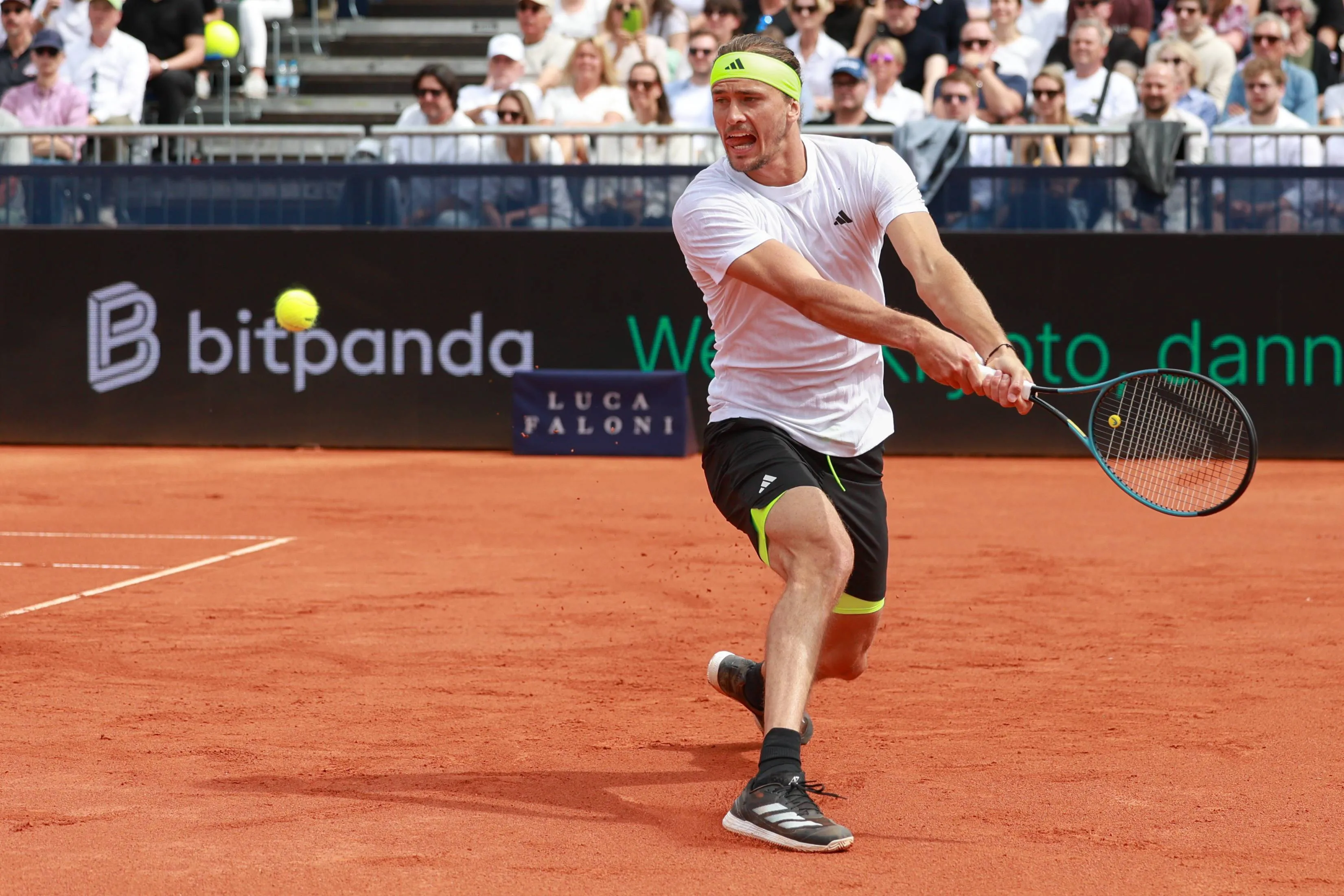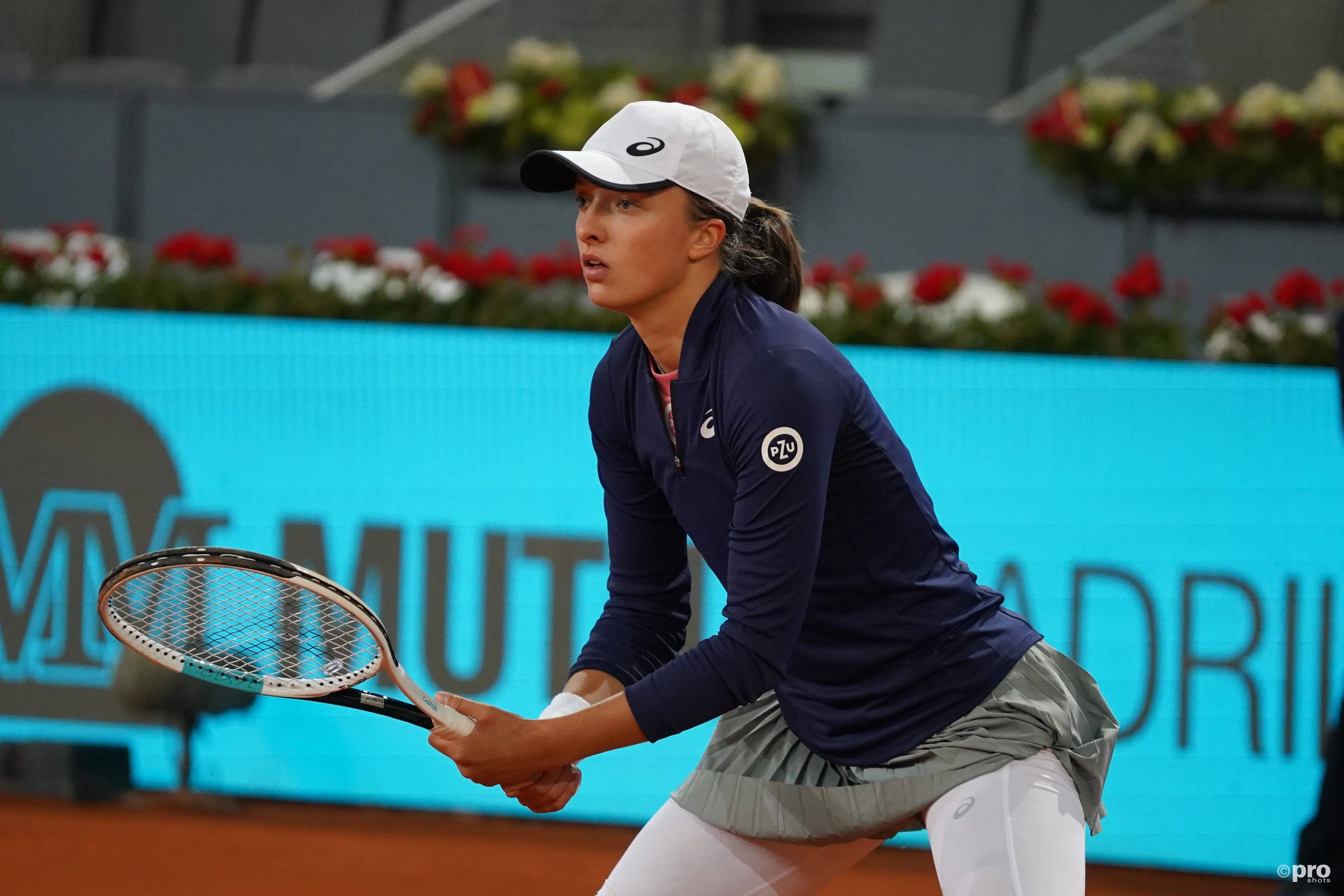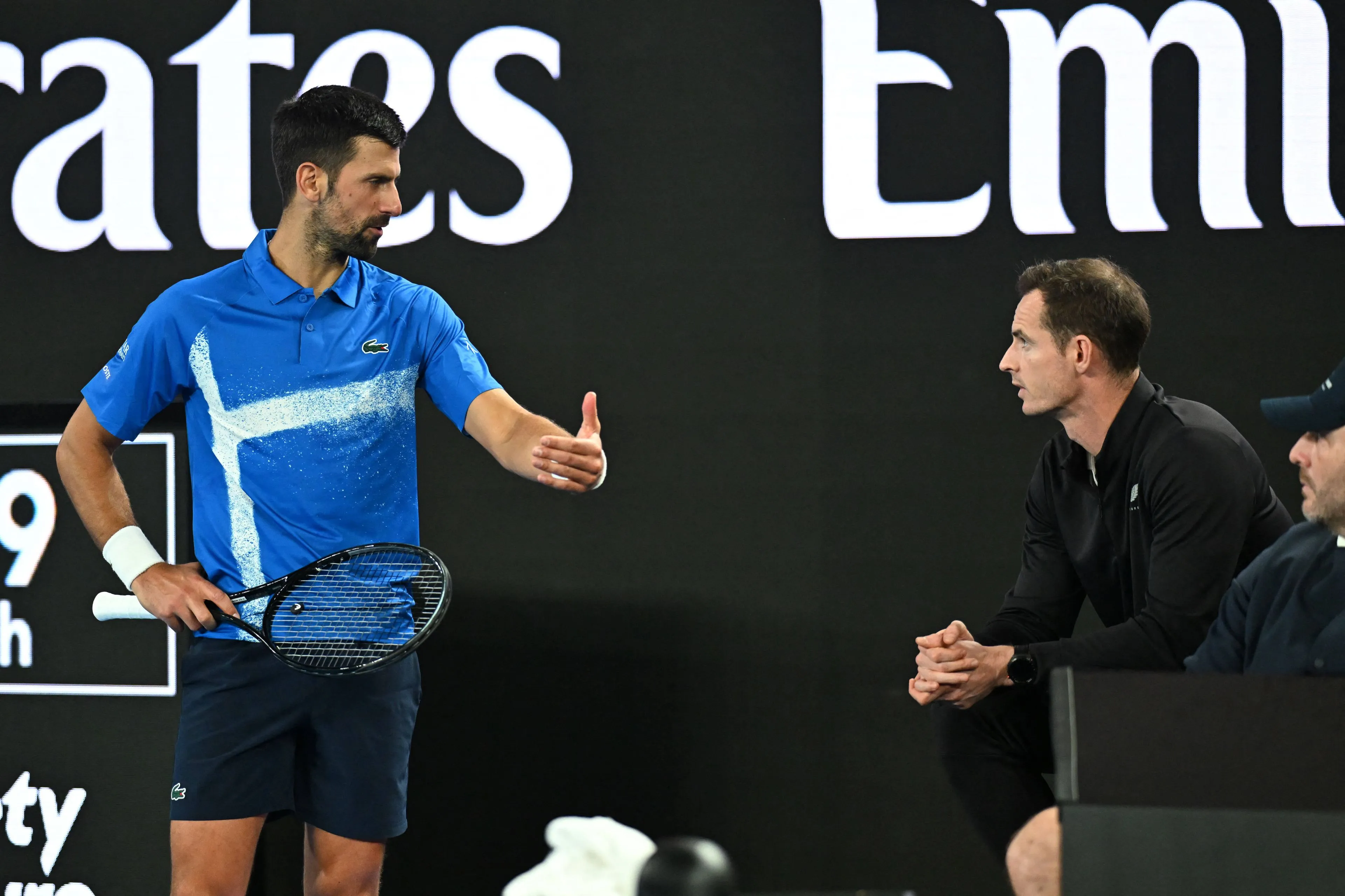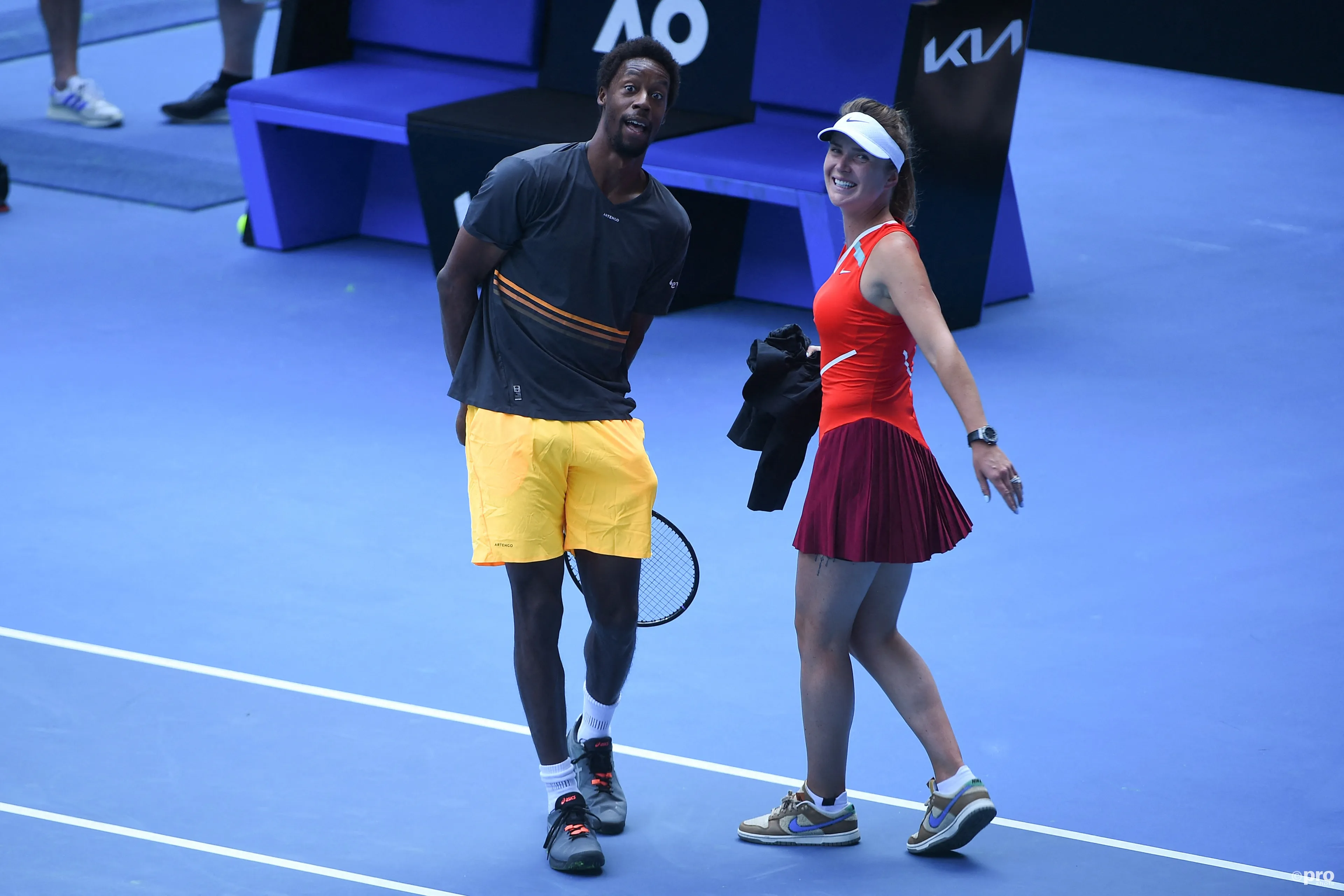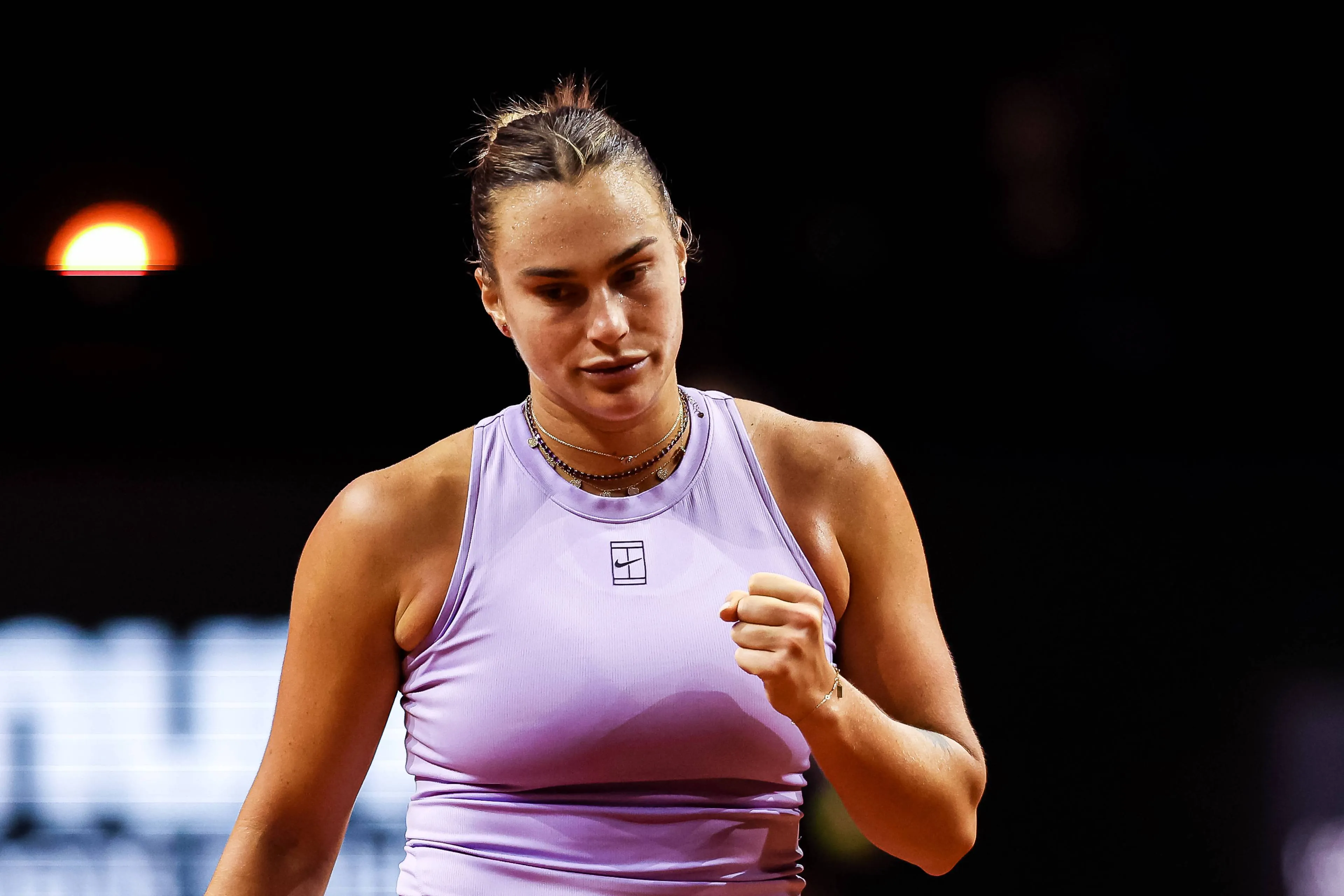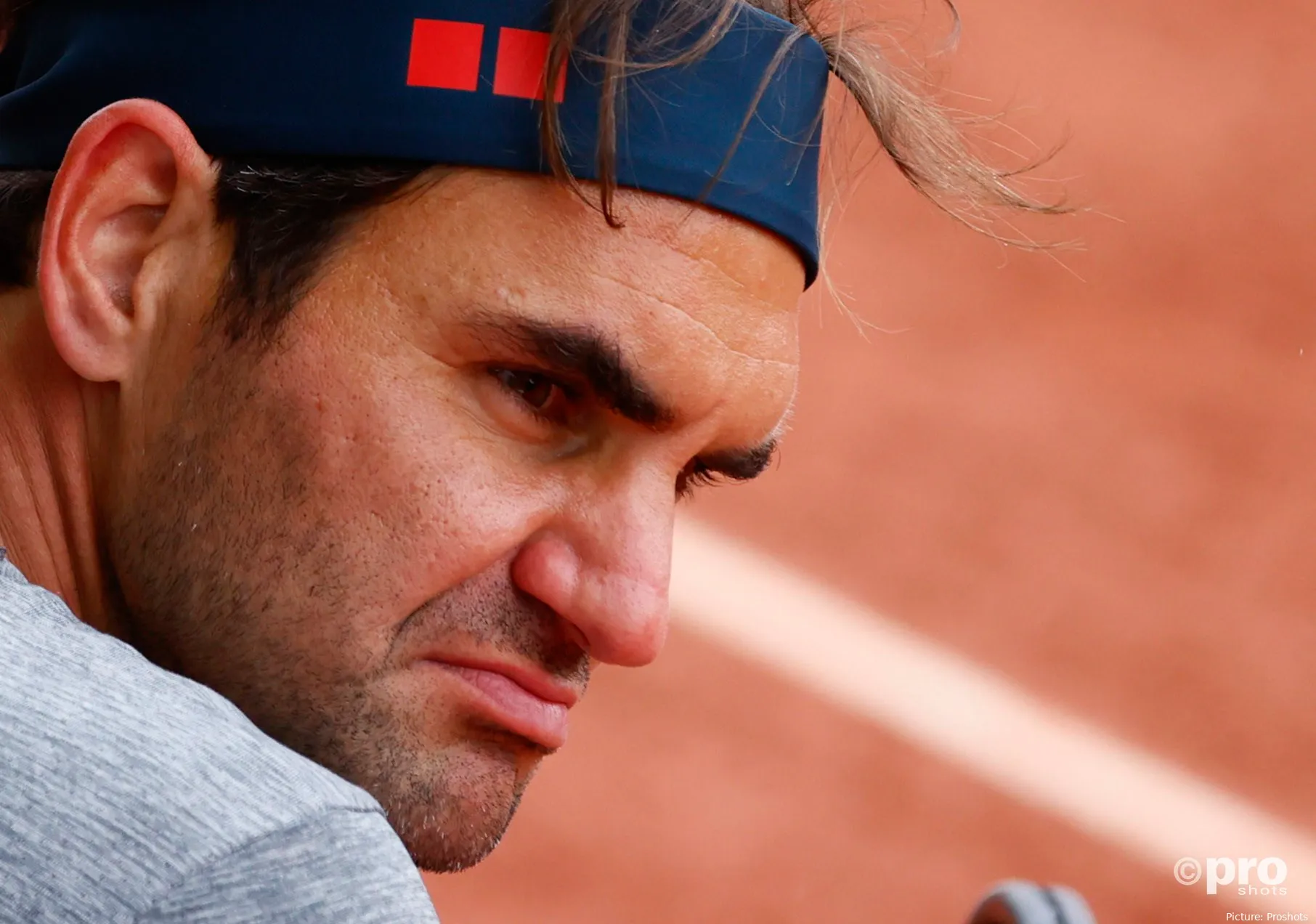
Who is Roger Federer?
Roger Federer is a Swiss former professional tennis player, born August 8, 1981 in Basel, Switzerland. He is widely regarded as one of the greatest tennis players of all time. Federer has won 20 Grand Slam titles, including eight times Wimbledon, six times the Australian Open, five times the US Open and once Roland Garros. His game is known for his elegant technique, versatility, and extraordinary consistency on all surfaces. Federer was the world number one for a long time and maintained that record number of weeks. In addition to his achievements on the court, he is known for his sportsmanship and influence in popularizing tennis worldwide. Federer has also played an important role in charity work through his Roger Federer Foundation, which focuses on educational projects for children in Africa and Switzerland. He officially retired in 2022, but remains an influential and beloved figure in the tennis world.
Name: Roger Federer
Born: 8 August 1981
Birthplace: Basel, Switzerland
Turned pro: 1998
Height: 1.85 m
Born: 8 August 1981
Birthplace: Basel, Switzerland
Turned pro: 1998
Height: 1.85 m
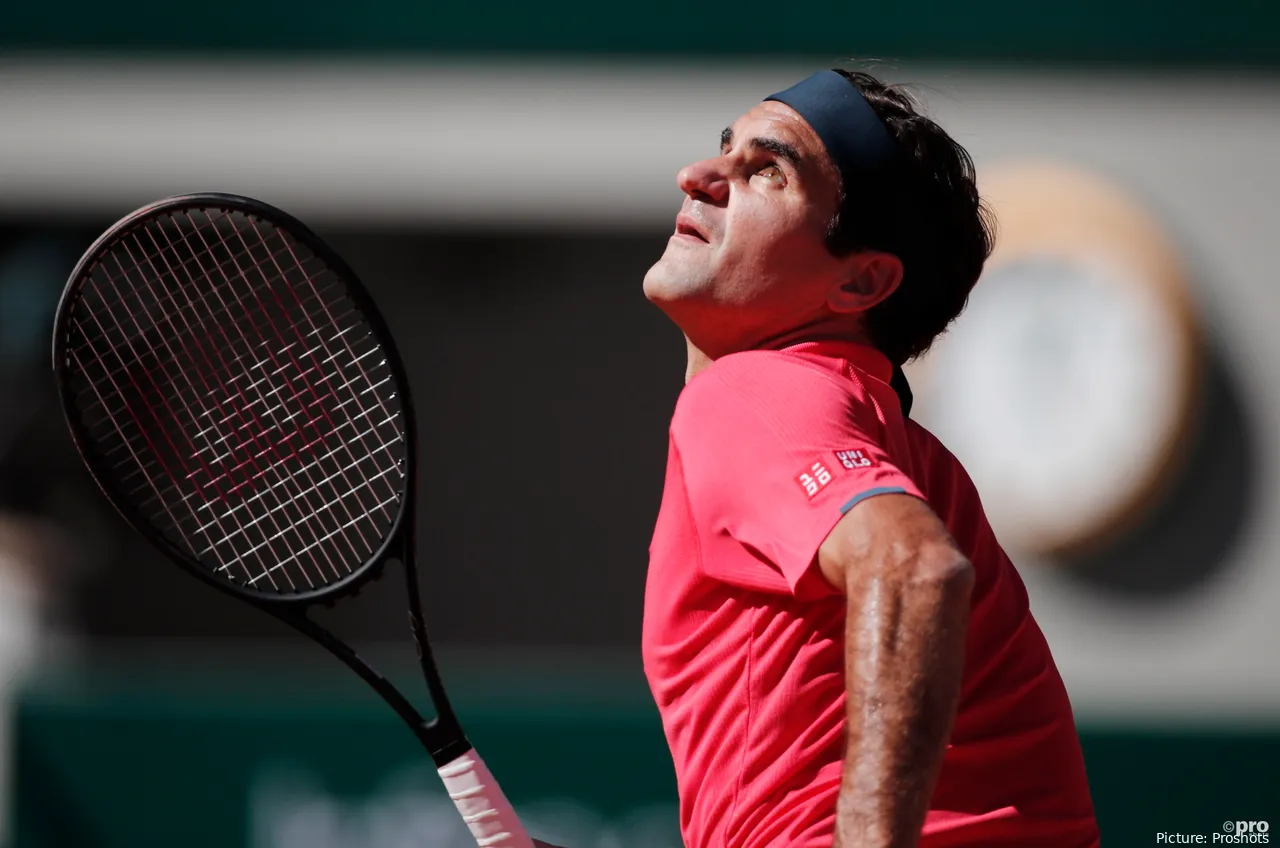
Roger Federer Roland Garros 2021
Roger Federer is a Swiss tennis legend, born August 8, 1981 in Basel, Switzerland. He is currently 43 years old and is widely regarded as one of the greatest tennis players of all time. Federer grew up in a sporting family; his mother, Lynette, is South African, and his father, Robert, is Swiss. Federer is married to Mirka Vavrinec, a former professional tennis star, and together they have four children, two pairs of twins: Myla & Charlene and Leo & Lenny.
Federer began his professional tennis career in 1998 and quickly broke through with his fluid style of play and versatility on all surfaces. He has won a total of 20 Grand Slam titles, including eight times Wimbledon, six times the Australian Open, five times the US Open and once Roland Garros. His achievements on the court, combined with his elegant technique and athletic demeanor, have endeared him worldwide.
Federer earned millions during his career through prize money and sponsorship deals with major brands such as Nike, Rolex, and Wilson. His annual earnings are among the highest in the sports world. In addition to his successes on the court, Federer is also known for his charitable work through the Roger Federer Foundation, which focuses on educational projects for children in Africa and Switzerland.
After a career spanning more than two decades, Federer announced his official retirement in 2022, but he remains an influential and respected figure in the tennis world and beyond.
Roger Federer began his remarkable tennis career in 1998. From the moment he played his first professional match, it was clear that Federer had something special. He debuted at Roland Garros and Wimbledon that year and quickly made a name for himself on the Challenger circuit, where he won his first professional title.
In 1999, Federer began participating more in ATP tournaments and reached his first semifinal on the ATP tour in Marseille. His talent and potential were obvious, and by the end of the year he was in the top 100 in the world rankings for the first time.
The year 2000 marked the next step in Federer's rise. He reached the semifinals of tournaments in Sydney and Basel and represented Switzerland at the Sydney Olympics, where he narrowly missed out on a medal by finishing fourth in singles. Although a medal eluded him, Federer showed he was ready to compete against the best players in the world.
Federer's breakthrough year came in 2001, when he defeated the legendary Pete Sampras in the fourth round of Wimbledon. This victory was a turning point in his career and one of the most memorable moments of his early years. He also won his first ATP title in Milan that year, confirming his potential as a future champion.
In 2002, Federer continued to refine his game, winning three ATP titles, including his first Masters 1000 title in Hamburg. He finished the year in the top 10 of the world rankings for the first time, laying the foundation for what would become one of the most successful careers in tennis history.
The year 2003 was a historic turning point for Federer. He won his first Grand Slam title at Wimbledon by defeating Mark Philippoussis in the final. This was the beginning of his dominance on the hallowed turf of Wimbledon, where he would eventually win eight titles. That same year, Federer added six other ATP titles, including the Tennis Masters Cup, and finished the year as No. 2 in the world.
In 2004, Federer completely broke through as the best player in the world. He won three Grand Slam titles: the Australian Open, Wimbledon and the US Open. His exceptional play and incredible consistency took him to the No. 1 position in the world rankings, a position he would hold for a long time. With four more Masters titles and the ATP Finals to his name, Federer ended the year as the world's undisputed No. 1.
Federer continued to dominate in 2005, successfully defending his titles at Wimbledon and the US Open. He added 11 titles to his already impressive record, including four Masters 1000 titles. Despite losses in the semifinals of the Australian Open and the final of Roland Garros, he remained No. 1 in the world, cementing his position as the best player of his generation.
The year 2006 was one of the most successful in Federer's career. He again won three Grand Slam titles (Australian Open, Wimbledon and US Open) and reached the final of Roland Garros, where he lost to his rising rival Rafael Nadal. Federer added four Masters 1000 titles and finished the year with an impressive 92-5 win-loss record. He ended the year as the No. 1 ranked player in the world, confirming his dominance in the sport.
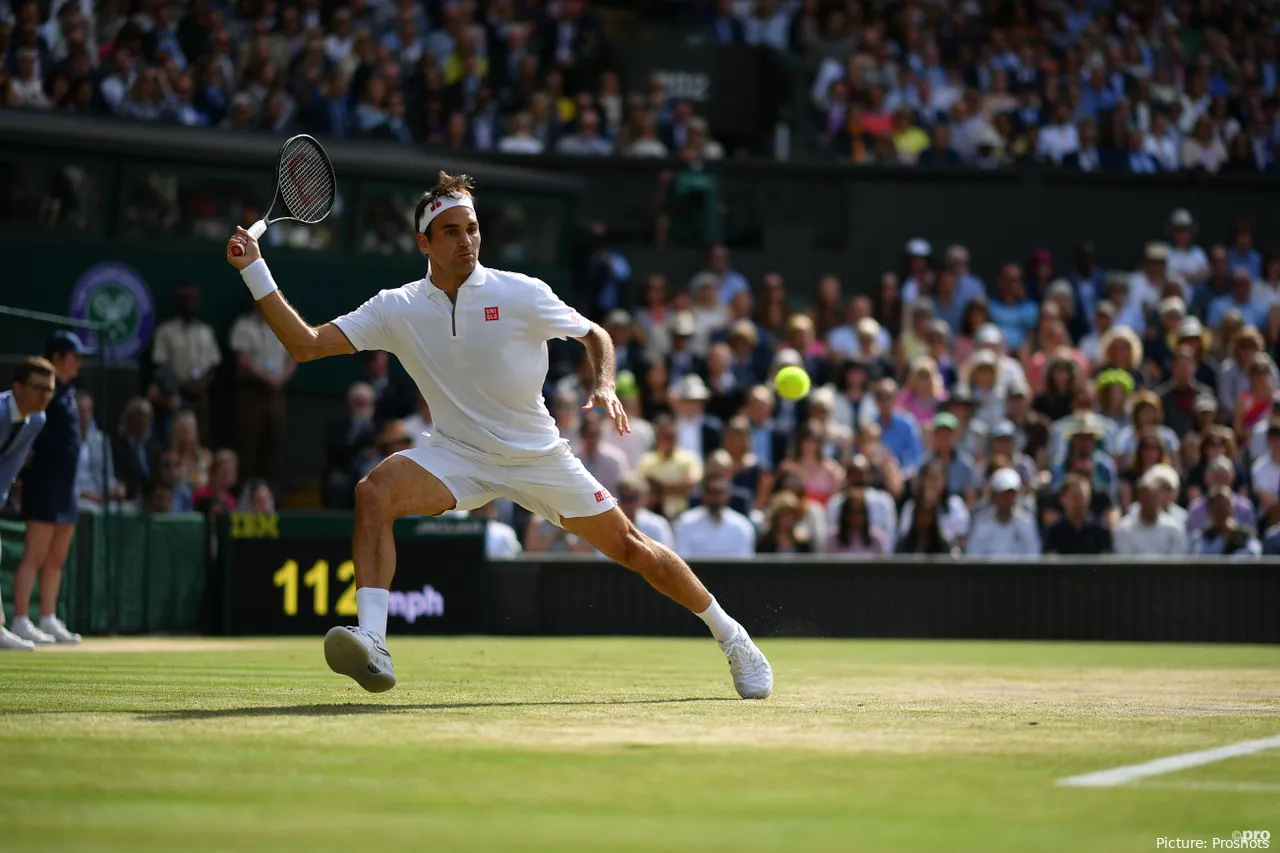
Roger Federer during Wimbledon Championships
In 2007, Federer continued his dominance by again winning three Grand Slam titles (Australian Open, Wimbledon and US Open) and reaching the final of Roland Garros, where Nadal again proved too strong. With two more Masters 1000 titles in his pocket, Federer ended the year as No. 1 in the world for the fourth time in a row.
2008 was a year of challenges for Federer. For the first time in five years, he lost his No. 1 position to Nadal. Despite this, he managed to win his fifth US Open title and reached the finals of Roland Garros and Wimbledon, where he lost to Nadal in what is considered one of the greatest tennis matches of all time. Federer also won Olympic gold in doubles with his compatriot Stan Wawrinka.
In 2009, Federer reached a milestone by completing the “Career Grand Slam” with his first win at Roland Garros. He also won his sixth Wimbledon title, breaking Pete Sampras' record for most men's Grand Slam titles (15). Federer returned to the No. 1 position in the world rankings and also reached the final of the Australian Open and the US Open, maintaining his exceptional level.
Federer started 2010 strongly by winning his fourth Australian Open title, although he failed to capture any other Grand Slam titles later that year. Nevertheless, he reached the quarterfinals or better in all four Grand Slam tournaments and added four more ATP titles to his name. He finished the year ranked No. 2 in the world.
In 2011, Federer faced more competition, especially from Nadal and Djokovic. He reached the final of Roland Garros, where he lost to Nadal, and the semifinals of the Australian Open and the US Open. Federer, however, won his sixth title at the ATP Finals and ended the year as No. 3 in the world.
2012 was another successful year for Federer. He won his seventh Wimbledon title by defeating Andy Murray in the final, which returned him to the No. 1 position in the world rankings. This year, he also broke the record for most weeks as No. 1 in the world. Federer added three more ATP titles and won a silver medal in singles at the London Olympics. In 2013, Federer suffered back injuries, which affected his performance. He failed to win a Grand Slam title that year and reached only one final, in Basel. For the first time since 2002, he finished the year outside the top five in the world rankings, at No. 6.
Federer rebounded in 2014, winning five ATP titles, including two Masters 1000 tournaments. He reached the final of Wimbledon, where he lost to Djokovic in a thrilling five-setter. Federer finished the year as No. 2 in the world, proving that he was still one of the top contenders in world tennis.
In 2015, Federer had a strong year, although he failed to win a Grand Slam title. He reached the final of both Wimbledon and the US Open, but lost both to Djokovic. He added six ATP titles to his collection, including the Cincinnati Masters, and finished the year ranked No. 3 in the world.
2016 was a difficult year for Federer. He suffered a serious knee injury and underwent his first surgery. As a result, he missed the second half of the season, including the Olympics and the US Open. Federer fell out of the top 10 in the world rankings for the first time in more than a decade, ending the year at No. 16.
Federer, however, made a sensational comeback in 2017. He won the Australian Open and Wimbledon, bringing his Grand Slam total to 19. Federer added five more ATP titles, including the Indian Wells and Miami Masters, and finished the year as No. 2 in the world, proving that despite his age, he was still a dominant force in tennis.
2018 began with even more success for Federer. He won his sixth Australian Open title, capturing his 20th Grand Slam title, a record among men. Federer briefly returned to the No. 1 position and won three ATP titles, including the Rotterdam Open. He finished the year ranked No. 3 in the world, although he was less successful the rest of the season.
In 2019, Federer reached his 12th Wimbledon final, where he lost to Djokovic after an epic five-setter. He won four ATP titles, including his 10th title in Halle and the Miami Open, and finished the year ranked No. 3 in the world, maintaining his consistency at the highest level.
The year 2020 brought new challenges for Federer. He underwent knee surgery and played only one tournament, the Australian Open, where he reached the semifinals. Due to the COVID-19 pandemic and his injury problems, he missed the rest of the season and finished the year outside the top 10 in the world rankings for the first time since 2016.
Federer returned to the tour in 2021, but played on a limited basis because of persistent knee problems. He reached the quarterfinals of Wimbledon, which was his best performance of the year. After announcing another surgery, Federer did not play the rest of the season and fell out of the top 20 in the world rankings.
In 2022, Federer announced that he would retire after the Laver Cup, ending his storied career. Although he was inactive on the tour all year because of persistent knee problems, his farewell received much attention and respect from fans, fellow players and the tennis community as a whole.
Roger Federer ended his career as one of the greatest tennis players of all time, with 20 Grand Slam titles and numerous records. His elegant style of play, incredible consistency and sportsmanship endeared him to millions of fans around the world. His influence on tennis will be felt for many generations to come, and he remains an iconic figure both inside and outside the sport.
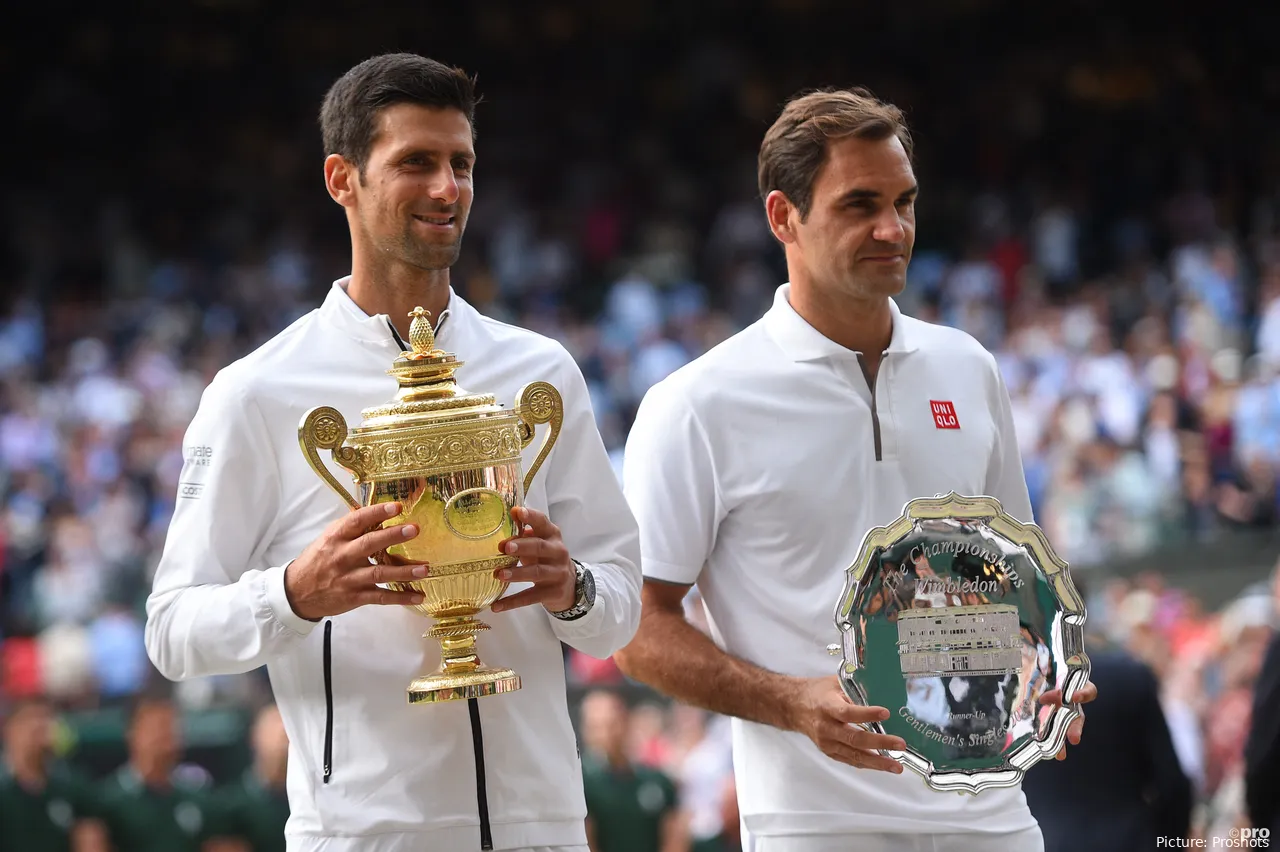
Roger Federer and Novak Djokovic Wimbledon Championships 2019
Read also
All Grand Slam Finals of Roger Federer
Win 2003 Wimbledon - Mark Philippoussis 7–6(7–5), 6–2, 7–6(7–3)
Win 2004 Australian Open - Marat Safin 7–6(7–3), 6–4, 6–2
Win 2004 Wimbledon (2) - Andy Roddick 4–6, 7–5, 7–6(7–3), 6–4
Win 2004 US Open - Lleyton Hewitt 6–0, 7–6(7–3), 6–0
Win 2005 Wimbledon (3) - Andy Roddick 6–2, 7–6(7–2), 6–4
Win 2005 US Open (2) -s Andre Agassi 6–3, 2–6, 7–6(7–1), 6–1
Win 2006 Australian Open (2) - Marcos Baghdatis 5–7, 7–5, 6–0, 6–2
Loss 2006 French Open - Rafael Nadal 6–1, 1–6, 4–6, 6–7(4–7)
Win 2006 Wimbledon (4) - Rafael Nadal 6–0, 7–6(7–5), 6–7(2–7), 6–3
Win 2006 US Open (3) - Andy Roddick 6–2, 4–6, 7–5, 6–1
Win 2007 Australian Open (3) - Fernando González 7–6(7–2), 6–4, 6–4
Loss 2007 French Open - Rafael Nadal 3–6, 6–4, 3–6, 4–6
Win 2007 Wimbledon (5) - Rafael Nadal 7–6(9–7), 4–6, 7–6(7–3), 2–6, 6–2
Win 2007 US Open (4) - Novak Djokovic 7–6(7–4), 7–6(7–2), 6–4
Loss 2008 French Open - Rafael Nadal 1–6, 3–6, 0–6
Loss 2008 Wimbledon - Rafael Nadal 4–6, 4–6, 7–6(7–5), 7–6(10–8), 7–9
Win 2008 US Open (5) - Andy Murray 6–2, 7–5, 6–2
Loss 2009 Australian Open- Rafael Nadal 5–7, 6–3, 6–7(3–7), 6–3, 2–6
Win 2009 French Open - Robin Söderling 6–1, 7–6(7–1), 6–4
Win 2009 Wimbledon (6) - Andy Roddick 5–7, 7–6(8–6), 7–6(7–5), 3–6, 16–14
Loss 2009 US Open - Juan Martín del Potro 6–3, 6–7(5–7), 6–4, 6–7(4–7), 2–6
Win 2010 Australian Open (4)- Andy Murray 6–3, 6–4, 7–6(13–11)
Loss 2011 French Open - Rafael Nadal 5–7, 6–7(3–7), 7–5, 1–6
Win 2012 Wimbledon (7) - Andy Murray 4–6, 7–5, 6–3, 6–4
Loss 2014 Wimbledon - Novak Djokovic 7–6(9–7), 4–6, 6–7(4–7), 7–5, 4–6
Loss 2015 Wimbledon - Novak Djokovic 6–7(1–7), 7–6(12–10), 4–6, 3–6
Loss 2015 US Open - Novak Djokovic 4–6, 7–5, 4–6, 4–6
Win 2017 Australian Open (5) - Rafael Nadal 6–4, 3–6, 6–1, 3–6, 6–3
Win 2017 Wimbledon (8) - Marin Čilić 6–3, 6–1, 6–4
Win 2018 Australian Open (6) - Marin Čilić 6–2, 6–7(5–7), 6–3, 3–6, 6–1
Loss 2019 Wimbledon - Novak Djokovic 6–7(5–7), 6–1, 6–7(4–7), 6–4, 12–13(3–7)
Roger Federer Grand Slam Record: 31 PLAYED - 20 WINS / 11 LOSSES
claps 0visitors 0
Just In
Popular News
Latest Comments
- Keep avoiding anti-Social Media, do your best to ignore loser sports writer's questions, and just do your own thing.
 mandoist24-04-2025
mandoist24-04-2025 - Let's face it, Saba is not the sharpest tool in the tool shed. Her sarcasm / passive agressive nonsense has always been annoying. Granted, attempting humor in another language is tough but she truly sucks at it.
 mandoist24-04-2025
mandoist24-04-2025 - Well, that was ... all about nothing. Every excuse and future workout plan mentioned should have been dealt with a long time ago. R.I.P., Mark Petchey.
 mandoist22-04-2025
mandoist22-04-2025 - I hope Marion Bley is the Chair Ump for the Final. It would be Karma Served for Saba after her disrespectful 'performance' in the semi.
 mandoist21-04-2025
mandoist21-04-2025 - Coco needs to stop the Williams Hero Worship and play like 'Coco'.
 mandoist19-04-2025
mandoist19-04-2025 - Didn't expect issues between these two...SakkariFan2318-04-2025
- Send her a crate of deodorant DoveSakkariFan2318-04-2025
- Good to see, hopefully Sakkari can return to the form she deserves.SakkariFan2318-04-2025
- Shame no play on Friday but some line-up incoming..SakkariFan2318-04-2025
- Zverev's reaction lacked a bit of class this time around. He handled it better in Australia.MrAndreeva18-04-2025

